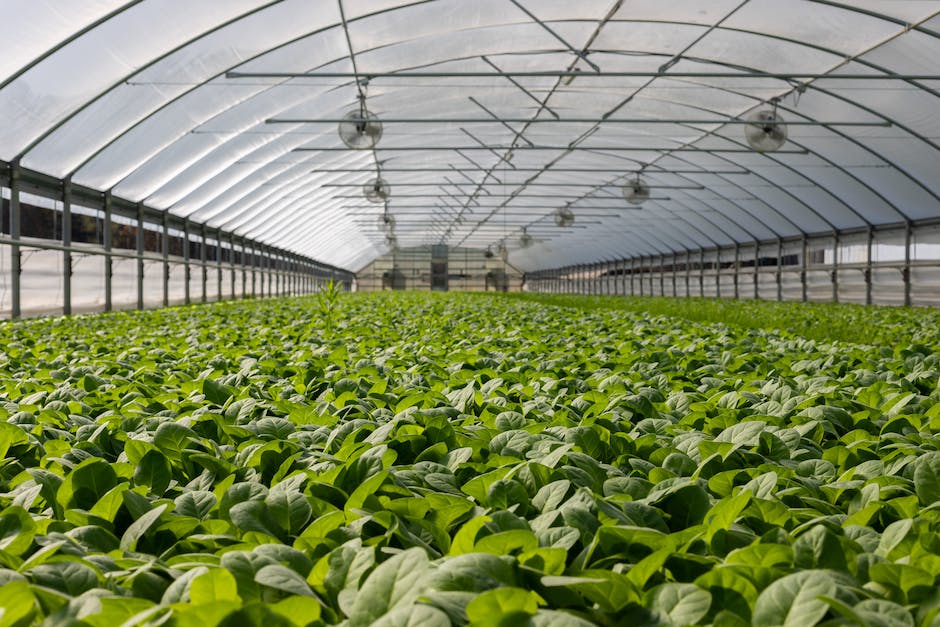Table of Contents
- Introduction
- The Benefits of Environmental Education in Creating a Sustainable Future
- How Environmental Education Can Empower Individuals to Make Eco-Friendly Choices
- The Role of Environmental Education in Promoting Conservation and Biodiversity
- The Impact of Environmental Education on Shaping Policies for a Greener Future
- Q&A
- Conclusion
Preparing for a Green Future: The Importance of Environmental Education
Introduction
Preparing for a Green Future: The Importance of Environmental Education
Environmental education plays a crucial role in equipping individuals with the knowledge and skills necessary to address the pressing environmental challenges of our time. As the world grapples with issues such as climate change, deforestation, and pollution, it becomes increasingly important to educate people about the importance of sustainable practices and the impact of human activities on the environment. This introduction highlights the significance of environmental education in preparing for a green future, emphasizing the need for individuals to understand and take action to protect and preserve our planet.
The Benefits of Environmental Education in Creating a Sustainable Future

Preparing for a Green Future: The Importance of Environmental Education
In today’s world, the need for environmental education has become increasingly important. As we face the challenges of climate change, pollution, and the depletion of natural resources, it is crucial that we equip ourselves with the knowledge and skills to create a sustainable future. Environmental education plays a vital role in this process, offering a range of benefits that extend beyond the classroom.
One of the key benefits of environmental education is its ability to raise awareness and understanding of environmental issues. By providing individuals with the knowledge and tools to understand the impact of their actions on the environment, environmental education empowers them to make informed decisions and take responsible actions. This increased awareness can lead to a shift in attitudes and behaviors, promoting more sustainable practices in all aspects of life.
Furthermore, environmental education fosters a sense of connection and stewardship towards the natural world. Through hands-on experiences and outdoor activities, individuals develop a deeper appreciation for the environment and a desire to protect it. This sense of connection can inspire individuals to become advocates for environmental conservation, leading to positive change in their communities and beyond.
In addition to raising awareness and fostering a sense of connection, environmental education also promotes critical thinking and problem-solving skills. By engaging in real-world environmental issues, individuals are encouraged to think creatively and develop innovative solutions. This ability to think critically and solve problems is essential in addressing the complex environmental challenges we face today.
Moreover, environmental education has been shown to have positive impacts on academic achievement. Studies have found that students who participate in environmental education programs demonstrate higher levels of engagement, motivation, and achievement in other subjects such as science, math, and language arts. This interdisciplinary approach not only enhances academic performance but also equips students with the skills necessary for success in the 21st century.
Beyond the individual level, environmental education also has broader societal benefits. By promoting sustainable practices and responsible decision-making, environmental education contributes to the development of a more environmentally conscious society. This, in turn, can lead to the creation of green jobs and the growth of sustainable industries. As the demand for environmentally friendly products and services increases, individuals with a background in environmental education will be well-positioned to contribute to a green economy.
In conclusion, environmental education plays a crucial role in preparing for a green future. By raising awareness, fostering a sense of connection, promoting critical thinking, and enhancing academic achievement, environmental education equips individuals with the knowledge and skills necessary to create a sustainable future. Moreover, it has broader societal benefits, contributing to the development of an environmentally conscious society and the growth of green industries. As we face the challenges of climate change and environmental degradation, investing in environmental education is not only essential but also a wise choice for a better future.
How Environmental Education Can Empower Individuals to Make Eco-Friendly Choices
Preparing for a Green Future: The Importance of Environmental Education
In today’s world, where climate change and environmental degradation are becoming increasingly pressing issues, it is crucial that individuals are equipped with the knowledge and skills to make eco-friendly choices. Environmental education plays a vital role in empowering individuals to understand the impact of their actions on the environment and make informed decisions that contribute to a sustainable future.
One of the key ways in which environmental education empowers individuals is by raising awareness about the interconnectedness of the natural world. By learning about ecosystems, biodiversity, and the delicate balance of nature, individuals gain a deeper understanding of how their actions can have far-reaching consequences. This knowledge helps them recognize the importance of preserving and protecting the environment.
Moreover, environmental education provides individuals with the tools to critically analyze environmental issues and evaluate the credibility of information. In a world where misinformation and greenwashing are prevalent, it is essential for individuals to be able to discern fact from fiction. By developing critical thinking skills, individuals can make informed decisions based on reliable information, rather than falling prey to misleading claims.
Another way in which environmental education empowers individuals is by fostering a sense of responsibility and agency. When individuals understand the impact of their actions on the environment, they are more likely to take responsibility for their choices and strive to make a positive difference. Environmental education encourages individuals to see themselves as active participants in creating a sustainable future, rather than passive bystanders.
Furthermore, environmental education equips individuals with practical skills that enable them to make eco-friendly choices in their daily lives. From learning about energy conservation and waste reduction to understanding sustainable agriculture and transportation, individuals gain the knowledge and skills necessary to minimize their environmental footprint. By making small changes in their lifestyle, individuals can collectively make a significant impact on the environment.
In addition to empowering individuals, environmental education also has broader societal benefits. By promoting a culture of environmental stewardship, it encourages individuals to become advocates for change in their communities. Environmental education can inspire individuals to engage in environmental activism, participate in conservation efforts, and support policies that prioritize sustainability. This collective action is crucial for driving systemic change and creating a greener future for all.
Moreover, environmental education can also have economic benefits. As the world transitions towards a green economy, there is an increasing demand for individuals with knowledge and skills in sustainability. By investing in environmental education, individuals can enhance their employability and contribute to the growth of green industries. This not only benefits individuals but also stimulates economic development and job creation.
In conclusion, environmental education plays a crucial role in empowering individuals to make eco-friendly choices and contribute to a sustainable future. By raising awareness, fostering critical thinking, promoting responsibility, and providing practical skills, environmental education equips individuals with the knowledge and tools necessary to minimize their environmental impact. Moreover, it encourages individuals to become advocates for change and supports the growth of green industries. As we prepare for a green future, investing in environmental education is not only essential but also beneficial for individuals, society, and the planet as a whole.
The Role of Environmental Education in Promoting Conservation and Biodiversity
Preparing for a Green Future: The Importance of Environmental Education
In today’s rapidly changing world, it has become increasingly important to prioritize environmental education. As we face pressing issues such as climate change, deforestation, and species extinction, it is crucial that we equip ourselves with the knowledge and skills to address these challenges. Environmental education plays a vital role in promoting conservation and biodiversity, and it is essential for creating a sustainable future.
One of the key roles of environmental education is to raise awareness about the importance of conservation. By educating individuals about the value of our natural resources and the impact of human activities on the environment, we can inspire them to take action. Environmental education helps people understand the interconnectedness of all living things and the delicate balance that exists in ecosystems. This understanding fosters a sense of responsibility and encourages individuals to make choices that are environmentally friendly.
Moreover, environmental education plays a crucial role in promoting biodiversity. Biodiversity refers to the variety of life on Earth, including plants, animals, and microorganisms. It is essential for the health and stability of ecosystems. Through environmental education, individuals learn about the importance of preserving biodiversity and the consequences of its loss. They gain an understanding of the role that each species plays in maintaining the balance of nature. This knowledge empowers individuals to take steps to protect and conserve biodiversity in their own communities.
Environmental education also helps individuals develop the skills and knowledge needed to address environmental challenges. It equips them with the tools to analyze environmental issues, evaluate potential solutions, and make informed decisions. By fostering critical thinking and problem-solving skills, environmental education empowers individuals to become active participants in finding sustainable solutions. This is particularly important as we face complex environmental problems that require innovative and collaborative approaches.
Furthermore, environmental education promotes a sense of stewardship and connection to the natural world. By immersing individuals in nature and providing hands-on experiences, it fosters a deep appreciation for the environment. This connection to nature is essential for inspiring individuals to protect and conserve the natural world. Environmental education encourages individuals to explore and engage with their surroundings, fostering a sense of wonder and curiosity. This connection to nature not only benefits the environment but also enhances the well-being and quality of life of individuals.
In conclusion, environmental education plays a crucial role in promoting conservation and biodiversity. By raising awareness, promoting biodiversity, developing skills, and fostering a connection to nature, it empowers individuals to become active participants in creating a sustainable future. As we face the challenges of climate change and environmental degradation, it is essential that we prioritize environmental education. By investing in environmental education, we can prepare ourselves for a green future and ensure the well-being of both present and future generations.
The Impact of Environmental Education on Shaping Policies for a Greener Future
Preparing for a Green Future: The Importance of Environmental Education
In today’s world, the need for environmental education has become increasingly important. As we face the challenges of climate change, pollution, and the depletion of natural resources, it is crucial that we equip ourselves with the knowledge and skills to make informed decisions and take action towards a greener future. One area where environmental education has a significant impact is in shaping policies that promote sustainability and conservation.
Environmental education plays a vital role in shaping policies for a greener future by raising awareness and understanding of environmental issues. By providing individuals with the knowledge and understanding of the interconnectedness of the environment, it enables them to make informed decisions and take action to protect and preserve our planet. This understanding is crucial for policymakers who are responsible for creating and implementing policies that address environmental challenges.
Furthermore, environmental education helps policymakers recognize the importance of sustainable practices and the need to incorporate them into policy frameworks. It provides them with the tools to assess the environmental impact of various policies and make informed decisions that prioritize sustainability. By integrating environmental education into policymaking processes, policymakers can ensure that their decisions are based on scientific evidence and best practices, leading to more effective and impactful policies.
Environmental education also fosters a sense of responsibility and stewardship towards the environment. By instilling a sense of connection and empathy towards nature, it encourages individuals to take personal responsibility for their actions and make choices that minimize their environmental footprint. This sense of responsibility extends to policymakers as well, who are more likely to prioritize environmental concerns when they have a personal understanding and connection to the natural world.
Moreover, environmental education promotes collaboration and dialogue among stakeholders. It brings together individuals from various backgrounds, including policymakers, scientists, educators, and community members, to discuss and address environmental challenges. Through these collaborative efforts, policymakers can gain insights and perspectives from different stakeholders, leading to more comprehensive and inclusive policies. Environmental education also empowers individuals to engage in civic participation and advocate for policies that promote sustainability, creating a more democratic and participatory decision-making process.
In addition to shaping policies, environmental education also has a broader impact on society. It equips individuals with the skills and knowledge to make sustainable choices in their daily lives, such as conserving energy, reducing waste, and supporting eco-friendly businesses. These individual actions, when multiplied across communities and societies, can have a significant collective impact on the environment. By promoting sustainable behaviors and lifestyles, environmental education contributes to the overall goal of creating a greener and more sustainable future.
In conclusion, environmental education plays a crucial role in shaping policies for a greener future. By raising awareness, fostering a sense of responsibility, promoting collaboration, and empowering individuals, it enables policymakers to make informed decisions that prioritize sustainability and conservation. Furthermore, environmental education has a broader impact on society by equipping individuals with the knowledge and skills to make sustainable choices in their daily lives. As we face the challenges of climate change and environmental degradation, investing in environmental education is not only necessary but also essential for creating a sustainable and resilient future.
Q&A
1. Why is environmental education important for preparing for a green future?
Environmental education is important because it helps individuals understand the impact of human activities on the environment and promotes sustainable practices for a greener future.
2. What are the benefits of environmental education?
Environmental education benefits individuals by increasing their awareness and knowledge about environmental issues, fostering a sense of responsibility towards the environment, and empowering them to make informed decisions for a sustainable future.
3. How does environmental education contribute to a green future?
Environmental education contributes to a green future by promoting sustainable behaviors, encouraging conservation efforts, and inspiring individuals to take action towards mitigating environmental challenges such as climate change and biodiversity loss.
4. Who can benefit from environmental education?
Environmental education benefits people of all ages and backgrounds, including students, educators, policymakers, businesses, and communities. It is essential for building a collective understanding and commitment towards a greener future.
Conclusion
In conclusion, environmental education plays a crucial role in preparing for a green future. It equips individuals with the knowledge and skills needed to understand and address environmental challenges. By promoting sustainable practices and fostering a sense of responsibility towards the environment, environmental education can contribute to the development of a more environmentally conscious society. Ultimately, investing in environmental education is essential for creating a sustainable and greener future for generations to come.






Recent Comments